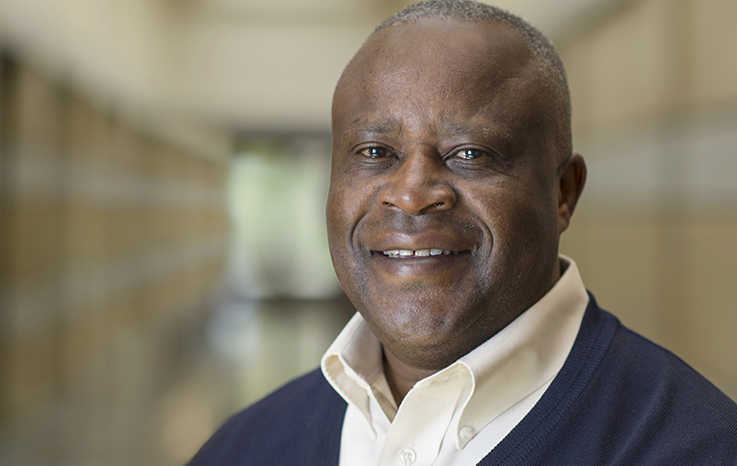In its broad conception the Authority, Community, and Identity (ACI) Research project is about Africa’s complex modernities. Modernity is not one thing (see, for example, Eisentadt’s multiple modernities thesis). African individuals and communities find themselves at the intersection of multiple modern, global, local, traditional, secular and religious forces. In Africa, the legacies of colonialism and post-colonial liberation contend with the processes and mechanisms of international development, all the while challenging and being challenged by religious flows of people, practice, and belief. The ACI research seeks to shed light on the complex ways in which individuals and communities in Africa negotiate the challenges and opportunities at that intersection. More specifically, through the ACI project researchers will investigate how various religious (Christian, Muslim, traditional) and secular forces collaborate, compete, contend and at times implicate each other in configuring, re-configuring and/or shaping new models of authority, community, and identity, both within and across traditions, and within the context of nation-state modalities.
The driving assumption of the research project is that these notions of “authority”, “community” and “identity” (both in their shifts and continuities) not only provide a good lens into the complex ways of negotiating the modern condition in Africa (with both its opportunities and challenges), they provide an apt and dynamic platform for exploring the relationships between secular and religious forces in modern Africa. By focusing on these three nodes of inquiry, the project will investigate questions of belonging, tradition, and change all within the particular flux of specific African contexts.
In addition to a shared sense of the complex ways in which contending modernities shape contemporary Africa, the ACI team shares a commitment to the particular, the local, by grounding our research in specific contexts. While the project takes up perennial issues of land, identity, family, and leadership, we do so in ways that honors the particularities of place by utilizing methods that help us to attend to the everyday lives of Africans. Through the diverse interests and identities of the ACI Africa research team, this attention to particularity is placed in a comparative context that allows us to engage the global-local dynamics of modernity in Africa.
It gives me great pleasure to introduce the four initial projects of the ACI Africa team:
Elias Bongmba’s (Rice University) research in Cameroon analyzes the land dispute between Ntumbaw and Njirong and the ways that it reflects a postcolonial encounter between religious and secular traditions. While paradigmatically Western and modern conceptions have tended to view land as a commodity, traditional Cameroonian practice has been to view land as a sacred trust from the ancestors. Bongmba plans to explore how these two villages develop their own understandings of the land, within the context of these competing visions of what land is.
Also in Cameroon, Cecelia Lynch (University of California Irvine) shifts the lens from land to gender to look at how religious women (Christian, Muslim, and “Traditional”) deploy their religiosity as resources for asserting rights, growing spiritually, and empowering themselves economically. By examining women’s organizations, Lynch will explore the ways the practices of scriptural study, economic development, and even eco-tourism provide platforms for women’s empowerment.
In a study complementing Lynch’s analysis of women’s organizations in Cameroon, ACI team member Ludovic Lado (Jesuit Institute of Human Rights and Dignity; Centre de Recherche et d’Action pour la Paix) will lead research examining the construction of the family in Cote d’Ivoire. International NGOs and agencies have exercised considerable influence over the construction of family, marriage gender and sexuality in this post-colonial state. Yet, other forces, often aided and supported by traditional religious authorities have contested these constructions as impositions. Lado and his team will research these cross-cutting influences to show how these competing forms of authority influence the actual construction of family life.
Finally, filling out the focus on Catholic, Islamic and secular discursive traditions, Ebenezer Obadare (University of Kansas) will study the explosion of Pentecostalism in Ghana and Nigeria and analyze its political impact in the face of deteriorating state institutions. Particularly Obadare will hone in on the Pentecostal pastor to examine the way charisma authorizes the pastor’s leadership, and whether and how that charisma travels across the lines of different discursive traditions (Catholic, Muslim and secular).
We are still expecting two or three more research projects; on youth identity in Northern Uganda; on Islam, violence and gender in Senegal; and on ecology and creation care in select African communities. Together these diverse yet complementary research projects will illuminate the dynamics of modernity as it impacts particular African communities and, in comparative perspective, the ways these dynamics impact the continent as a whole. We look forward to sharing more of our findings as the research progresses.

